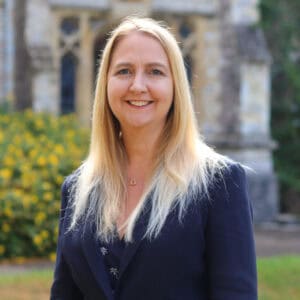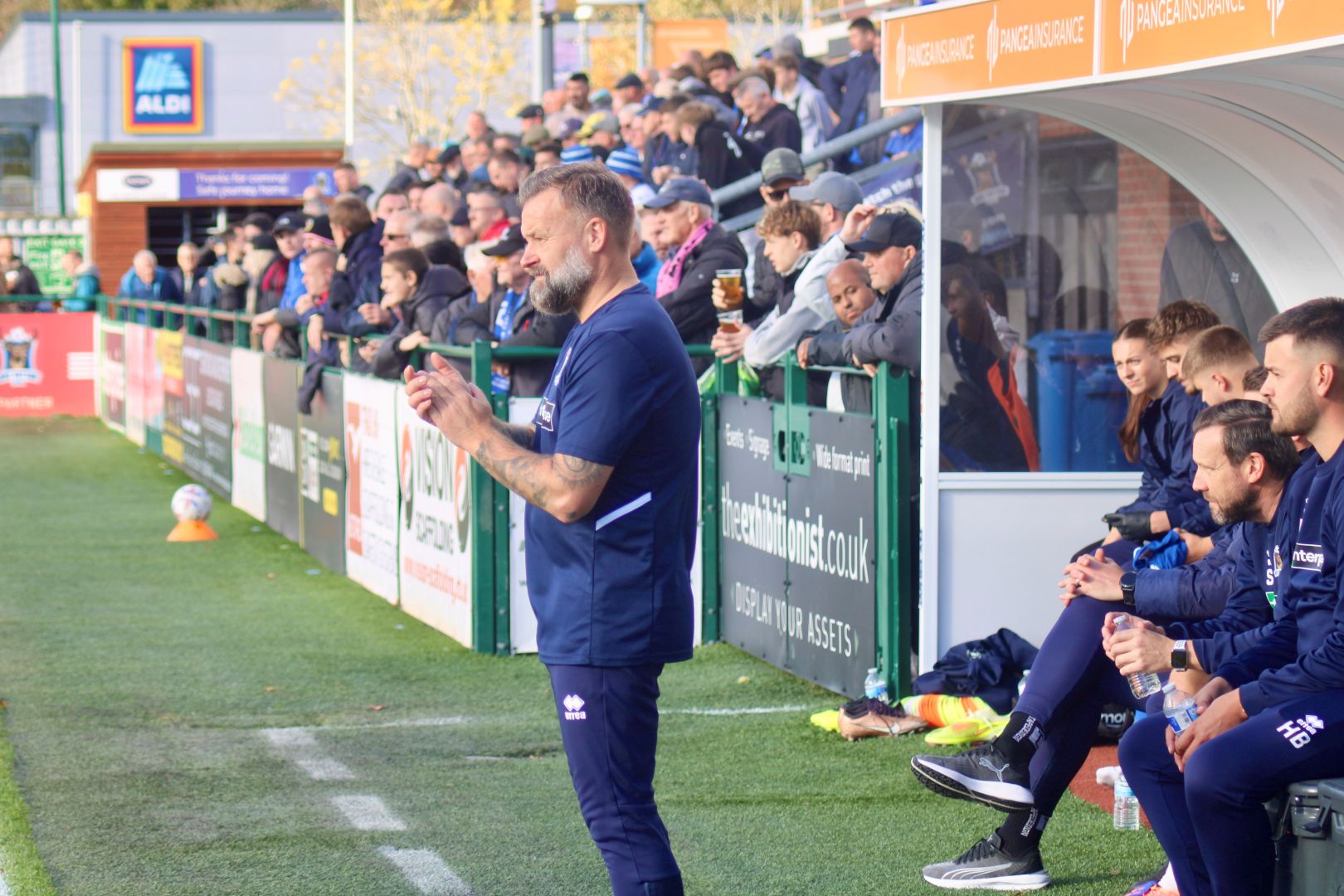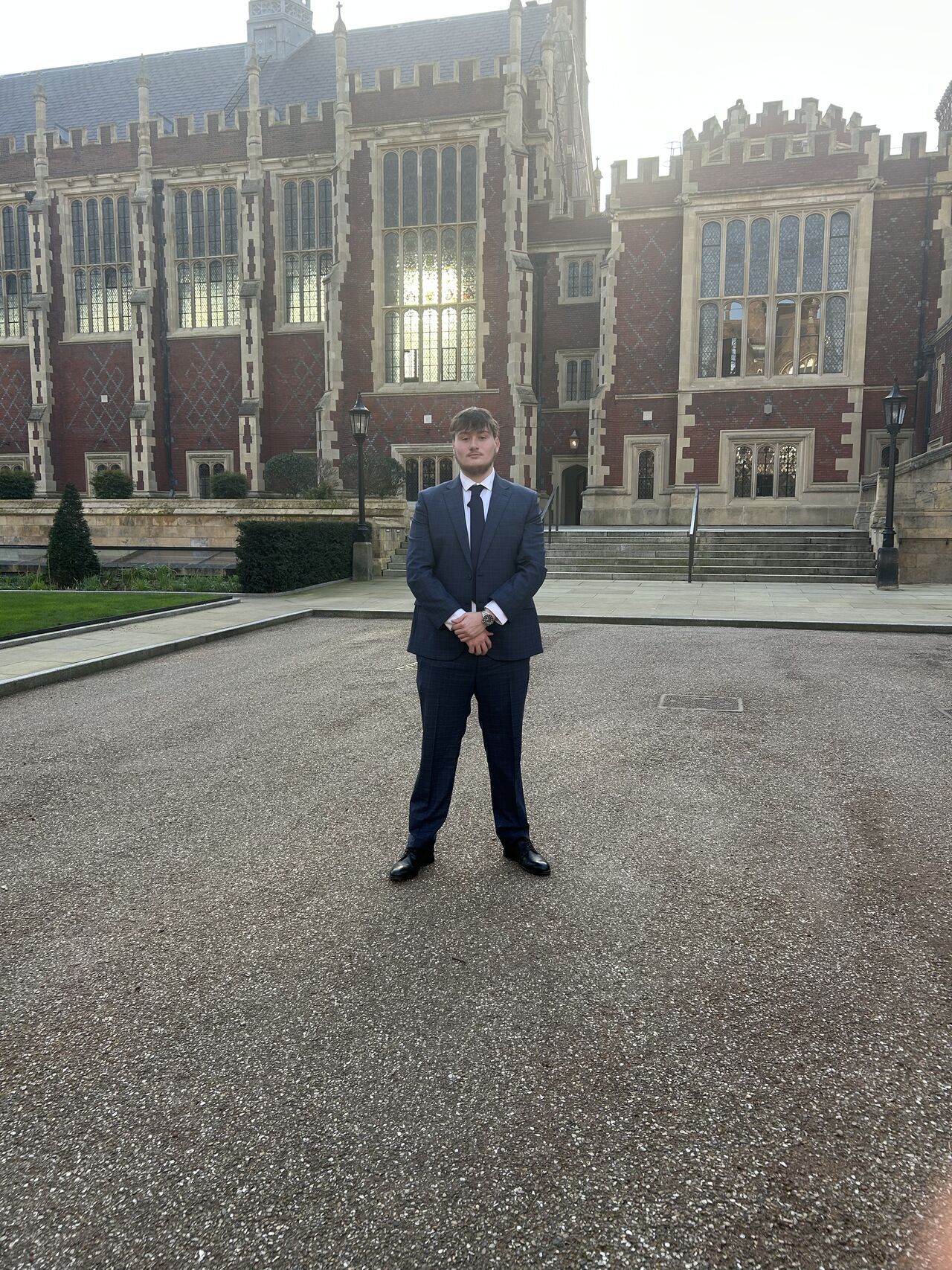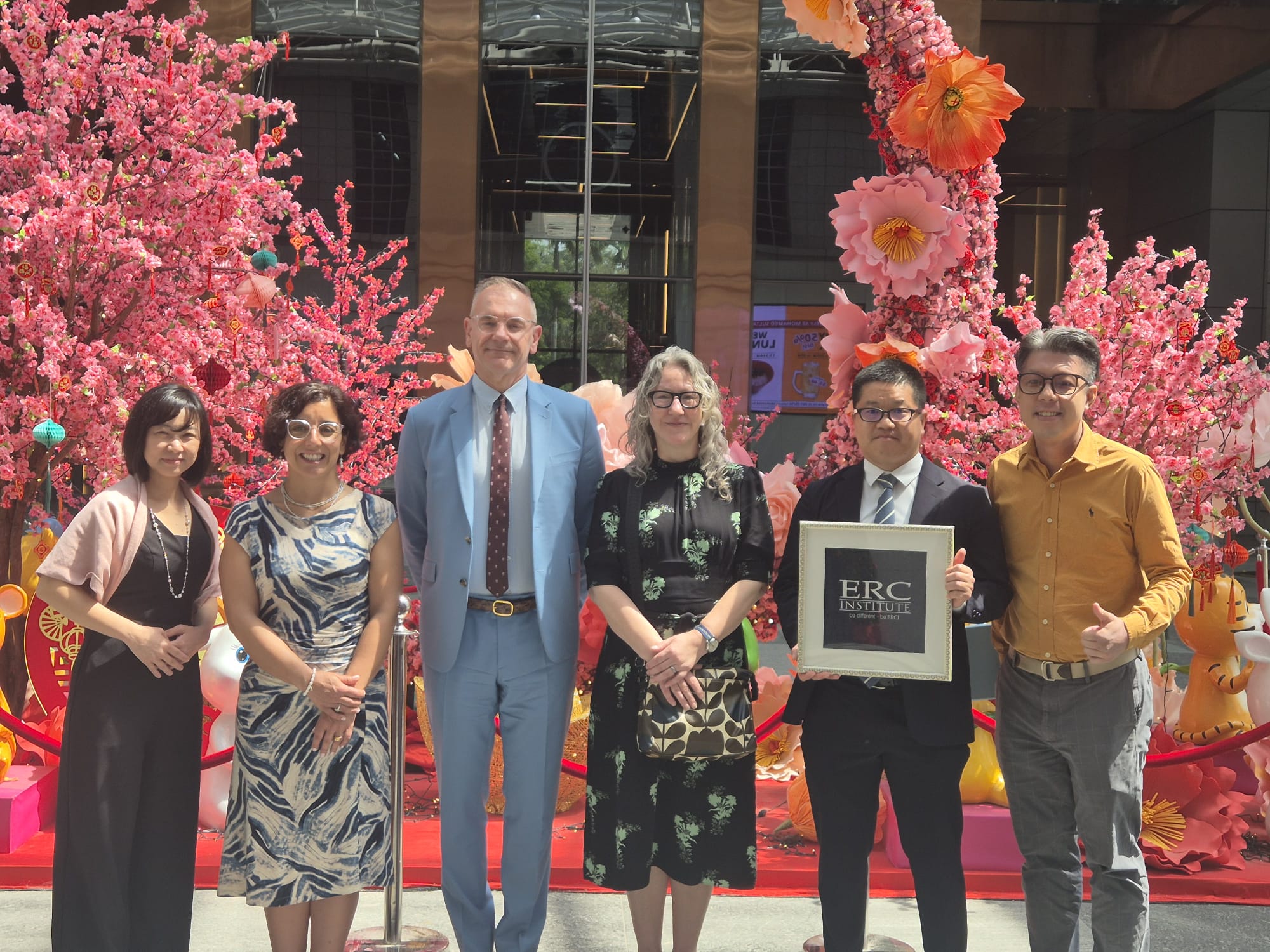Our People – Amy Elkington

Dr Amy Elkington is a senior lecturer in Law and oversees the Law programmes at the University of Chichester.
When did you join the University of Chichester and what brought you here?
I joined the University in 2019 after working for two other Universities, a law firm and an FE (further education) college. I was looking for a new challenge, and setting up a brand-new Law provision certainly ticked this box.
I found it difficult at the start; as for the first year I was really the only Law Lecturer. It was a risk for me when I started and it was a risk for the university, but it was an opportunity to deliver something new and exciting.
I have built a team that shares the same kinds of values that I do, all about the students and teaching and learning. This creates a really caring, nurturing learning environment.
What’s an average day at work like for you?
I am not sure there is such a thing as an average day. Every day is really different. I spend a fair amount of the week planning and preparing my classes, and then in the classroom delivering the sessions – predominately on criminal law. I also go out to colleges to deliver masterclasses on different aspects of law, and we regularly invite college students into the University to get a taste of what studying law is like.
Apart from that I’m working with local, national and international employers to develop opportunities for students and to enhance our provision. I spend as much time as I can supporting students and my team, to ensure the smooth running of the law provision.
I also spend time doing research, including in the area of law (or lack thereof) for victims of domestic abuse who commit crime. I am particularly interested in how the law relating to duress – when people are made to do things against their will – fails to provide a defence in these circumstances,
What do you love most about working at the University of Chichester?
I love the University’s focus on inclusivity. This is really important in an area such as law where there are still so many barriers to be broken down. I also love that I get to work with such a diverse range of staff and students. Historically, Legal roles have predominantly been held by white, conservative, privately educated males. Those are not necessarily the best people for the job. Sometimes they are, but the system has to be based on merit. It is important that everyone gets a fair chance at a legal career.
I was the first generation in my family to go to university and I was completely unprepared for the world of higher education. I remember going to lectures with around 200 people and just being talked at. Nobody knew who I was, nobody knew my name. That is not what I want for our students, there’s a much more personal approach at Chichester.
I particularly love graduation (and try not to get to overly emotional). I am so proud of all the students and feel honoured to have played a small part in their success. Many students have gone to work for law firms, the Ministry of Justice, in legal departments and for the police.
What makes Law at Chichester unique?
Our course is quite modern as it is fairly new. There is a lot of focus on the practical application of the law and mooting.
We try and provide the students with as many opportunities as possible to meet professionals and take part in activities that will get them ahead, preparing them for the world outside.
In future we want to have a law clinic. This is something I have been working on for a number of years. This involves students providing legal advice to members of the public under the supervision of a qualified solicitor. Students would manage the whole process from start to finish, from dealing with enquiries, meeting the clients and giving the legal advice. It is really important for the students and the community, as legal funding has all but disappeared.
We are also starting to work with Sanctuary in Chichester. This is a charity supporting asylum seekers and refugees. Students can be involved with their legal support service, which helps people apply for citizenship.
What drew you to law?
Everyone has a sense of justice, of what’s right and wrong, what’s fair and what is not. My recently published book Criminal Law and Criminal Justice: Morals and Policy explores the balance between wanting law that is certain but equally law that is flexible enough to take into account all different circumstances.
What is your greatest achievement in your job or research?
This one is really hard… I think it is quite an achievement to set up a law department from scratch – but I obviously I have not done this on my own. I have built a close-knit team, who are all excellent colleagues. I am thrilled that Law has been first in the NSS for two years running (2023 and 2024), as this really represents the student-centred ethos of the team and the hard work that is put in.
A definite highlight was having Lady Hale visit the University (three times). I have always been in awe of her achievements and accomplishments. Therefore, I was delighted at her impressions of the University and the law provision – which she refers to so positively in her book ‘Spider Woman’.
Overall, though, I think the achievements that really matter are the successes of the students. We have had students with seemingly insurmountable difficulties, thrive and achieve on our law degrees programmes. Nothing is better than that.





